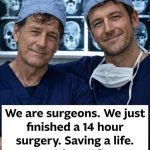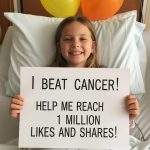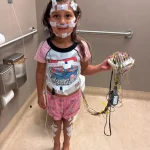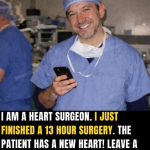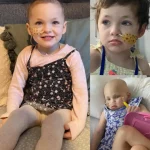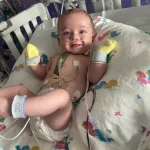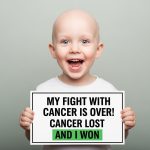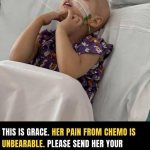Lily’s Story: A Journey of Courage, Hope, and a Tiny Heart That Keeps Beating
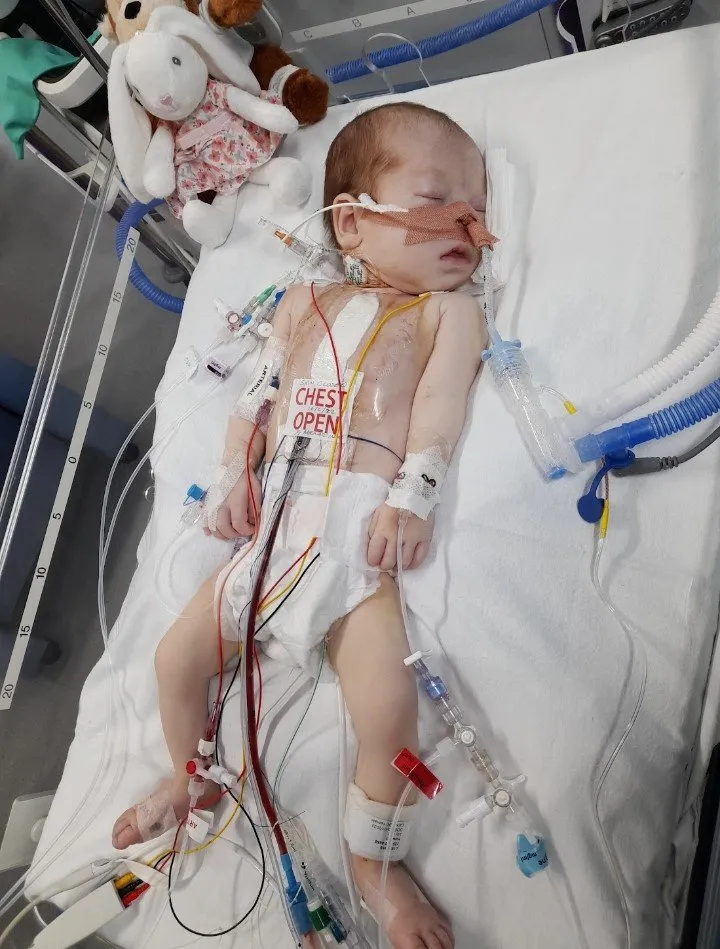
When you look at baby Lily today — smiling, curious, full of life — it’s hard to believe how close she once came to losing that precious heartbeat. Her story is one of courage, hope, and the unbreakable bond of family support in the face of congenital heart disease.
A Perfect Beginning That Hid a Silent Battle
Lily was born a seemingly healthy baby. Her tiny fingers wrapped around her mother’s, and her first cries filled the room with joy. To her parents, Joanne and her husband, everything felt perfect.
But sometimes, even the strongest hearts hide their struggles.
For the first seven weeks, Lily grew weaker each day. She refused to feed properly and lost weight rapidly. Joanne and her husband made countless visits to their local GP, only to be told that Lily probably had reflux or a milk allergy. They tried everything — new formulas, medications, endless sleepless nights — but nothing worked. Deep down, they knew something was terribly wronG.

The Day Everything Changed
On 13th September, at just seven weeks old, Lily suddenly went pale and lethargic. Her breathing became labored. Terrified, her parents rushed her to the emergency department.
That day, doctors confirmed what no parent ever wants to hear: Lily was in heart failure.
Specialists at the hospital discovered several severe heart defects — Shone’s Complex, a collapsed aortic valve, hypoplastic left side of her heart, and a large VSD (a hole about one centimeter wide). Her lungs were filling with fluid, like a “wet sponge,” and she was choosing to breathe rather than eat — her tiny body fighting just to stay alive.
Within hours, Lily was moved to intensive care.
Open Heart Surgery at Seven Weeks Old
Only three days later, on 16th September, Lily underwent open heart surgery. Surgeons worked to repair the collapsed valve and placed a PA band to control the blood flow to her lungs. It was a risky and delicate procedure — one that no parent should ever have to face.
The surgery saved her life, but Lily’s journey was far from over. Doctors explained she would need at least two more surgeries in the coming years: one to loosen the band and another to close the VSD. In the future, she may also need a Fontan procedure, a complex operation that reroutes blood flow so oxygenated blood can circulate without using the left side of her heart.
For Joanne and her husband, it was a lot to take in. They had entered a world of medical terms, hospital routines, and quiet prayers — all revolving around a baby who was too small to understand what was happening.
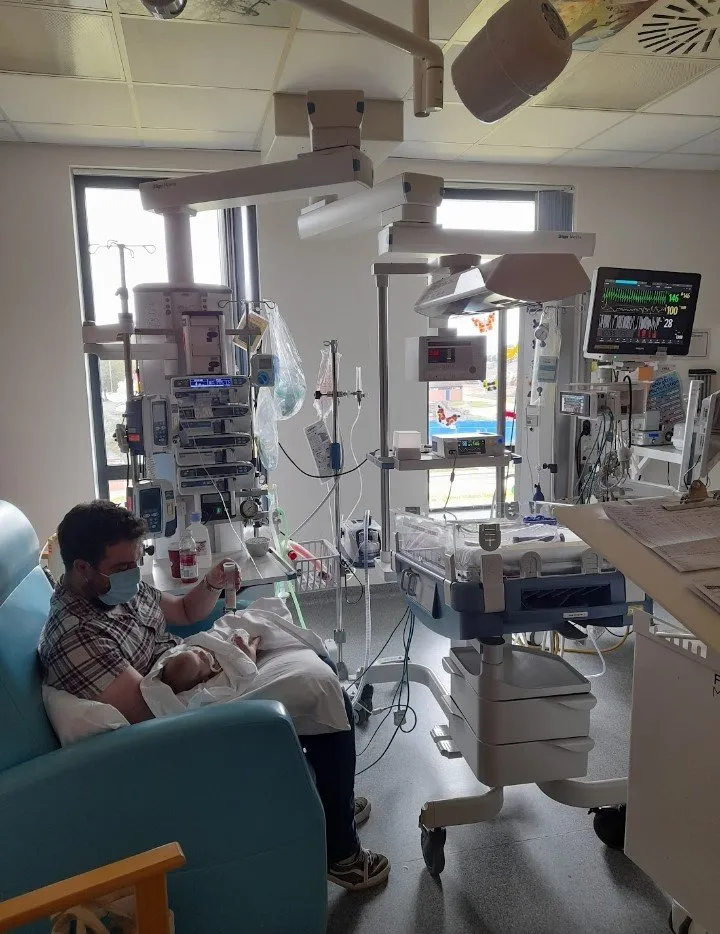
The Toughest Seven Weeks
Looking back, Joanne often says that those seven weeks before Lily’s diagnosis were the hardest part. “We knew something was wrong,” she recalls, “but we were told again and again it was just reflux.”
Because of the feeding difficulties and late diagnosis, Lily developed a strong aversion to milk. She now receives nutrition through a nasogastric tube, which she’ll need until at least her first birthday.
At home, Joanne and her husband had to learn to feed her via the tube — a skill that once terrified them. “We were first-time parents,” she says softly. “We were scared to even touch the equipment at first. But you learn. Because you have to. Because she needs you.”
Their house slowly transformed into a mini hospital: machines, feeding supplies, medication charts. Yet it also became a place filled with love, resilience, and quiet strength.
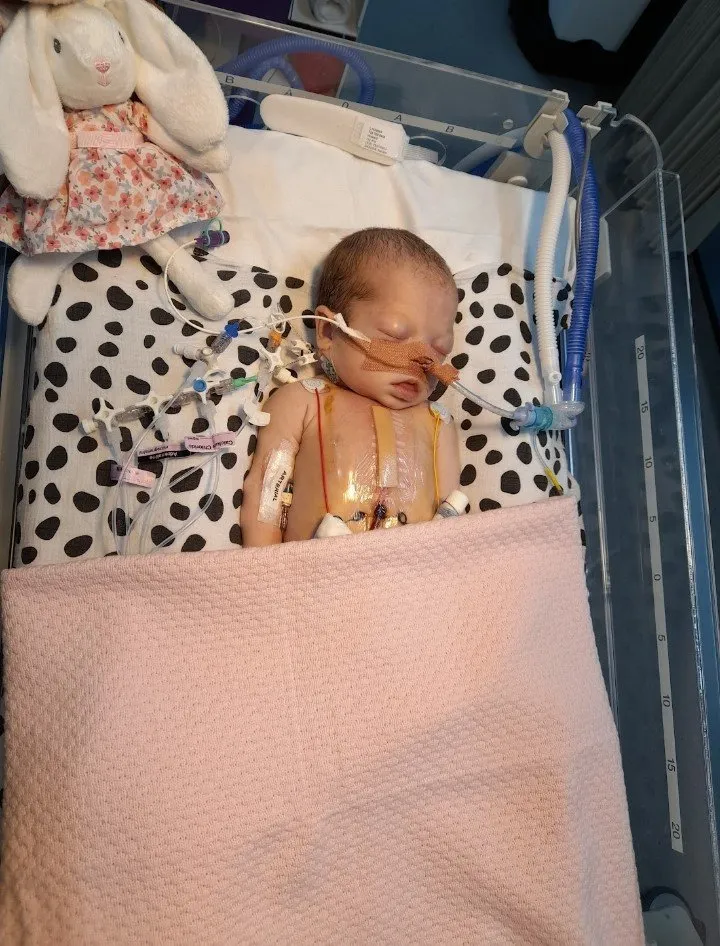
The Importance of Early Diagnosis
Like many parents of children with congenital heart disease (CHD), Joanne often wonders what might have been different if Lily’s condition had been detected earlier.
“Had we known Lily had CHD,” she says, “we wouldn’t have struggled alone for seven weeks. And maybe she wouldn’t have developed her feeding issues.”
Early diagnosis may not have changed Lily’s condition — but it could have prepared them better. They would have known what signs to look for. They could have reached help sooner. And perhaps, they could have avoided some of the trauma that still lingers.
This is why Joanne now speaks out to raise awareness of Shone’s Complex, hypoplastic left heart syndrome, and other congenital heart defects. She hopes that by sharing Lily’s story, other families might recognize the symptoms earlier — and get help before it’s too late.
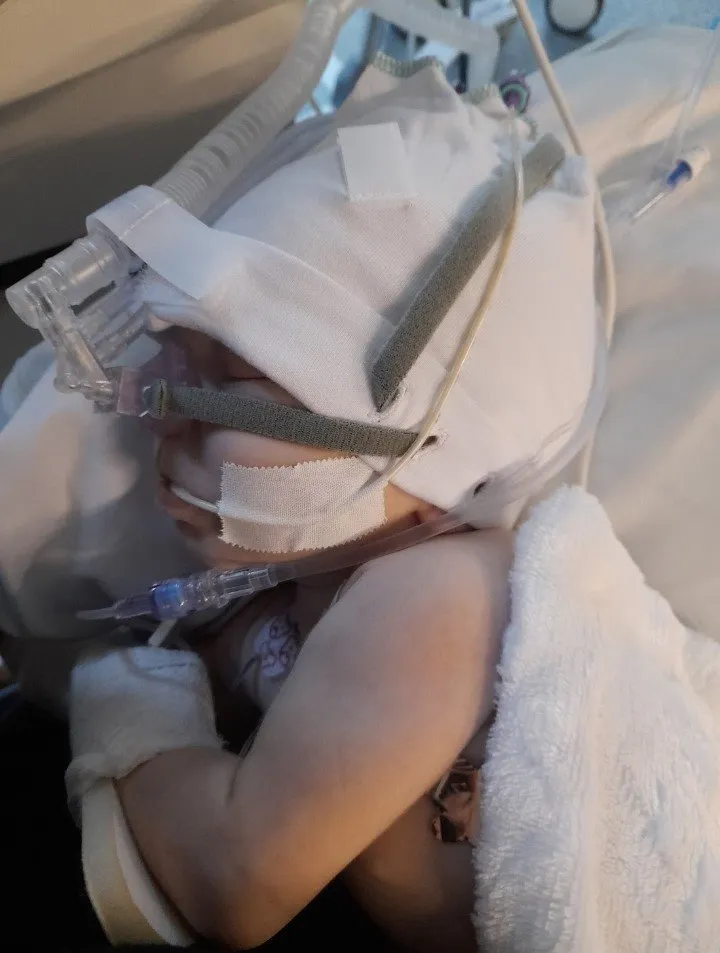
A New Chapter: Hope and Healing
Today, Lily is nine months old, and her progress is nothing short of miraculous. After once falling to the 0.4th centile in weight, she’s now thriving in the 75th centile. Her heart is functioning “normally” for now, though doctors continue to monitor her closely.
She recently started nursery, something her parents once thought impossible. The staff received special training to feed her via tube — an act of kindness that filled Joanne’s heart with gratitude. “Seeing her play, laugh, and interact with other children,” she says, “is something we’ll never take for granted.”
Every check-up brings both relief and anxiety. But each good result feels like a small victory — proof that their little girl keeps defying the odds.

Lessons in Courage and Love
Lily’s story is about more than heart surgery or hospital visits. It’s about the power of love — a family’s courage to keep going, even when the future feels uncertain.
There were moments of doubt and fear, nights filled with beeping monitors, and endless waiting rooms. But through it all, Joanne learned that courage isn’t loud. Sometimes, it’s just holding your baby’s hand and whispering, “You can do this.”
For parents walking a similar path, Joanne’s message is simple yet powerful:
“Trust your instincts. If something feels wrong, push for answers. Early detection can save a life — it saved our Lily.”
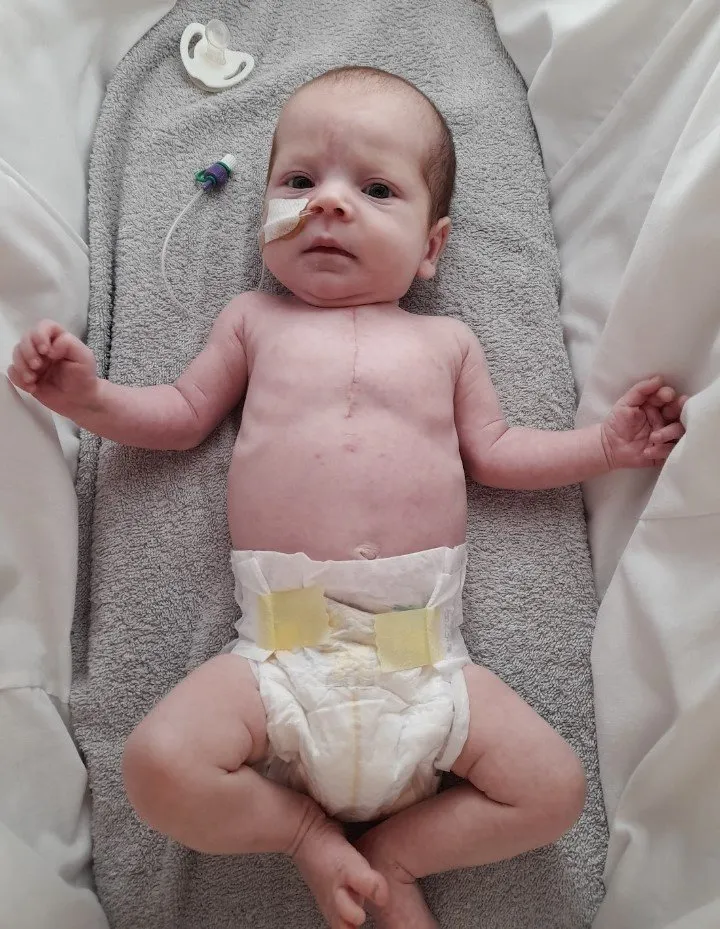
Looking Ahead with Hope
Lily’s journey is still unfolding. More surgeries lie ahead, and her heart will always need special care. But she has already proven she’s a fighter — a survivor with a spirit far bigger than her tiny frame.
Her story shines a light on the thousands of families living with congenital heart disease, reminding us all of the importance of awareness, medical research, and compassion.
Every heartbeat counts. Every moment matters.

